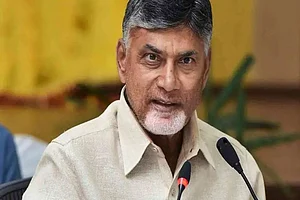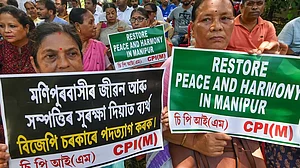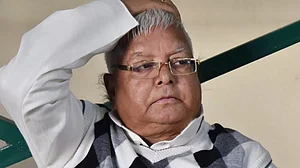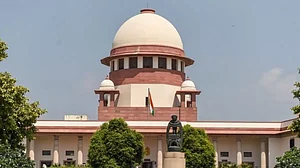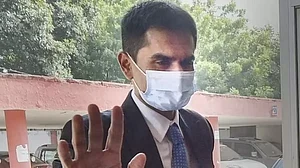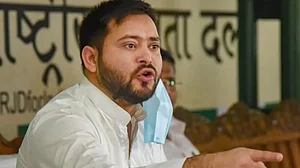
Name: Central Bureau of Investigation
The Central Bureau of Investigation (CBI) is the domestic crime investigating agency of India. It operates under the jurisdiction of the Ministry of Personnel, Public Grievances, and Pensions. Originally set up to investigate bribery and governmental corruption, in 1965 it received expanded jurisdiction to investigate breaches of central laws enforceable by the Government of India, multi-state organised crime, and multi-agency or international cases. The agency has been known to investigate several economic crimes, special crimes, cases of corruption, and other cases. CBI is exempted from the provisions of the Right to Information Act. CBI is India's officially designated single point of contact for liaison with Interpol.
The CBI headquarters is located in the CGO Complex, near Jawaharlal Nehru Stadium in New Delhi. The CBI has a high conviction rate, which stood at 74.59% in 2022.
The Bureau of Investigation has its beginnings in the Special Police Establishment (SPE), a Central Government Police force, established by the Government of India in 1941 to probe bribery and corruption in dealings with the War and Supply Department of India. The main office was located in Lahore. Qurban Ali Khan, the Superintendent of the SPE, chose to join Pakistan after the Partition of India. Rai Sahib Karam Chand Jain was the initial legal advisor of the War Department. Following the war's conclusion, a central governmental agency was still required to look into bribery and corruption among central-government workers. Sahib Karam Chand Jain continued as its legal advisor after the department was moved to the Home Department under the 1946 Delhi Special Police Establishment Act.
Sardar Patel, the initial Deputy Prime Minister of independent India and leader of the Home Department, aimed to eliminate corruption in former princely states like Jodhpur, Rewa, and Tonk. Patel instructed Legal Advisor Karam Chand Jain to oversee the legal cases against the dewans and chief ministers of those states. The DSPE was given the name Central Bureau of Investigation on 1 April 1963 by a resolution of the Home Ministry, which is now its popular name.
The CBI became known as India's top investigative agency due to its capabilities in handling complex cases and was called upon to help in probing crimes like murder, kidnapping, and terrorism. The Supreme Court and numerous High Courts in the nation also started transferring such investigations to the CBI after receiving petitions from affected individuals. In 1987, the CBI underwent division into different departments including the Anti-Corruption Division, Special Crimes Division, Economic Offences Division, Policy and International Police Cooperation Division, Administration Division, Directorate of Prosecution Division, and Central Forensic Science Laboratory Division. D. P. Kohli, who served as the first director of the CBI, was in office from 1 April 1963 to 31 May 1968. Prior to that, Kohli served as Inspector-general of police for the Special Police Establishment from 1955 to 1963, and he also held law-enforcement roles in Madhya Bharat (as chief of police), Uttar Pradesh, and local central government offices.
The Director General of Police, an IPS officer, leads the CBI as its Director. Praveen Sood, the former DG and IGP of Karnataka state police, now serves as the present director of CBI. A high-profile committee formed under The Delhi Special Police Establishment (DSPE) Act, 1946 as amended by The Lokpal and Lokayuktas Act, 2013 appoints the director for a two-year term that can be prolonged for an additional three years.
The CBI insisted on conducting independent investigations, stating that while it respected the government's authority in non-corruption cases, the director needed adequate financial and administrative powers, as well as a minimum three-year term for "functional autonomy."
The CBI headquarters in New Delhi is an 11-storey building worth ₹186 crore (US$22 million) that accommodates all agency branches. The 7,000-square-metre (75,000 sq ft) building is equipped with a modern communications system, an advanced record-maintenance system, storage space, computerised access control and an additional facility for new technology.
The establishment of the CBI Academy in Ghaziabad, located to the east of Delhi, took place in 1996. It is located around 40 km from the New Delhi railway station and approximately 65 km from Indira Gandhi International Airport. The campus, which spans 26.5 acres (10.7 ha) and includes fields and plantations, contains buildings for administration, academics, student housing, and residential purposes.
The legality of CBI investigations comes from the DSPE Act 1946, which grants powers, responsibilities, rights, and obligations to the Delhi Special Police Establishment (CBI) and officers of the Union Territories. The powers and jurisdiction of the CBI for investigation may be expanded by the central government to any region (excluding Union Territories), with the approval of the respective state government. In 2022, The Minister of state in the Prime Minister's office told Rajya Sabha that nine states had revoked general consent to the CBI for investigating cases in their respective states. West Bengal, Maharashtra, Kerala, and Punjab are among the states listed. In June 2023, Tamil Nadu became the ninth state to retract permission. According to a five-judge constitutional bench of the Supreme Court on 17 February 2010, the High Courts and the Supreme Court can order a CBI investigation in a state without the state's consent (in Civil Appeals 6249 and 6250 of 2001). The CBI is not subject to the regulations of the Right to Information Act, of 2005. This exception was approved by the government on 9 June 2011 (along with comparable exceptions for the National Investigation Agency (NIA), the Directorate General of Income Tax Investigation, and the National Intelligence Grid (Natgrid)) due to national security concerns.



